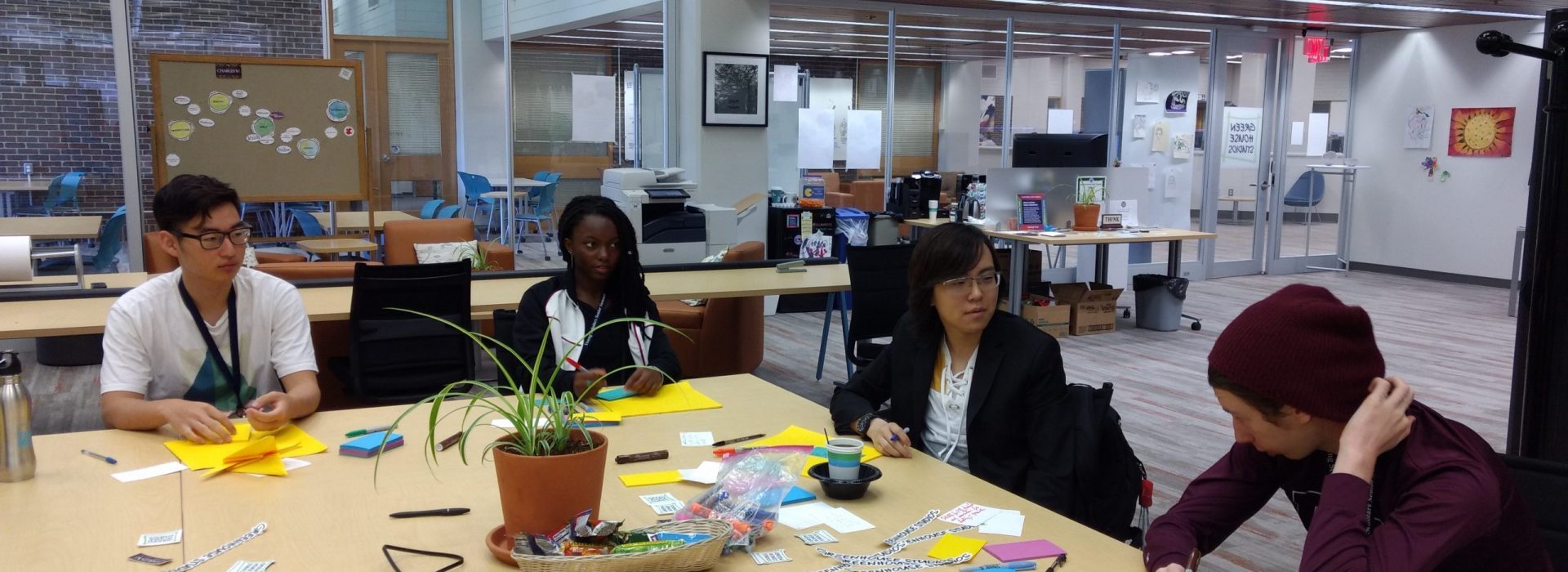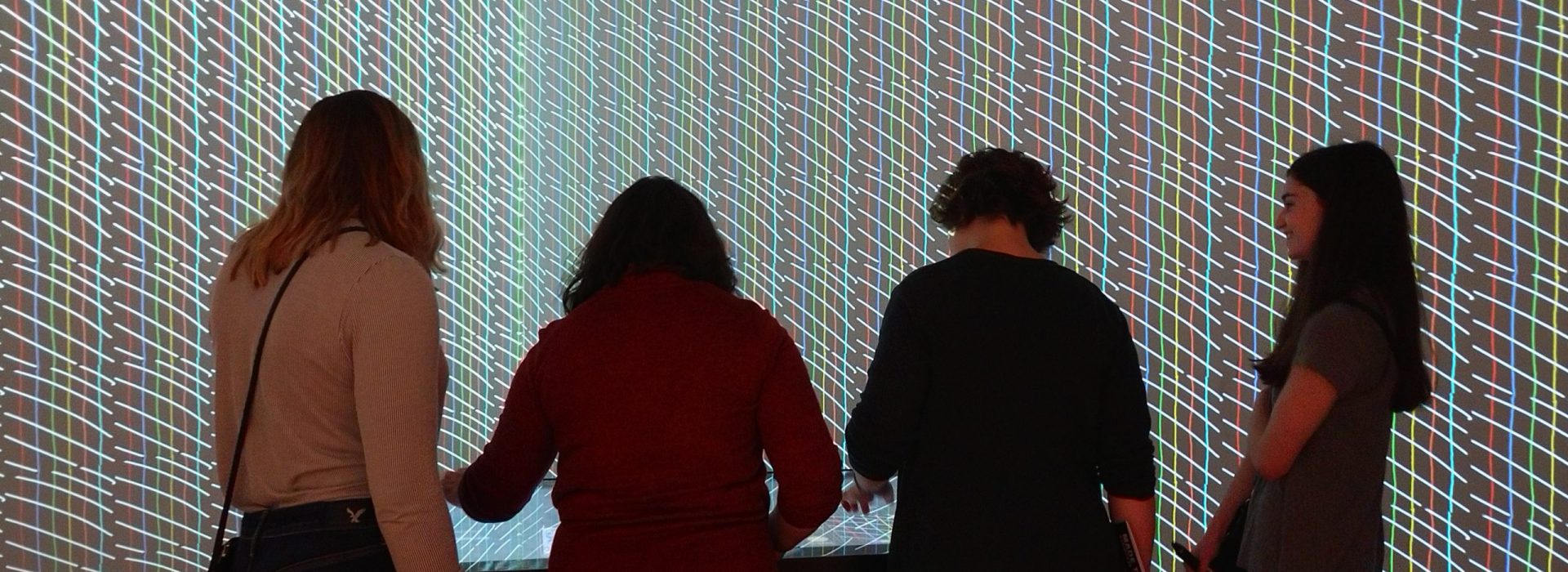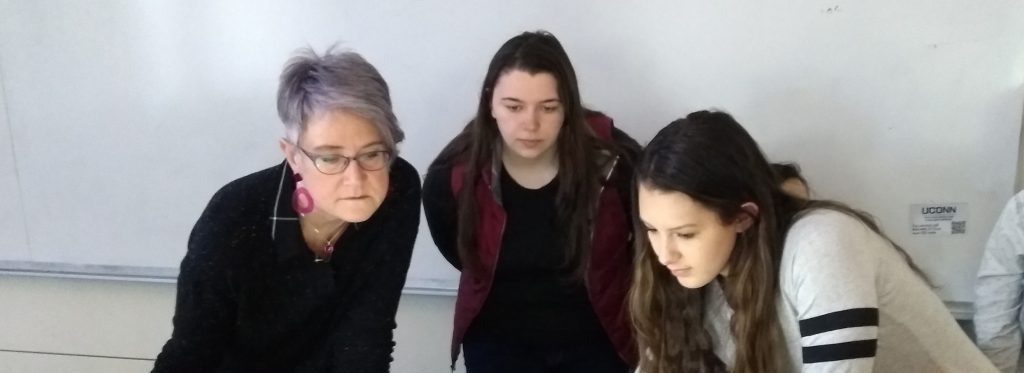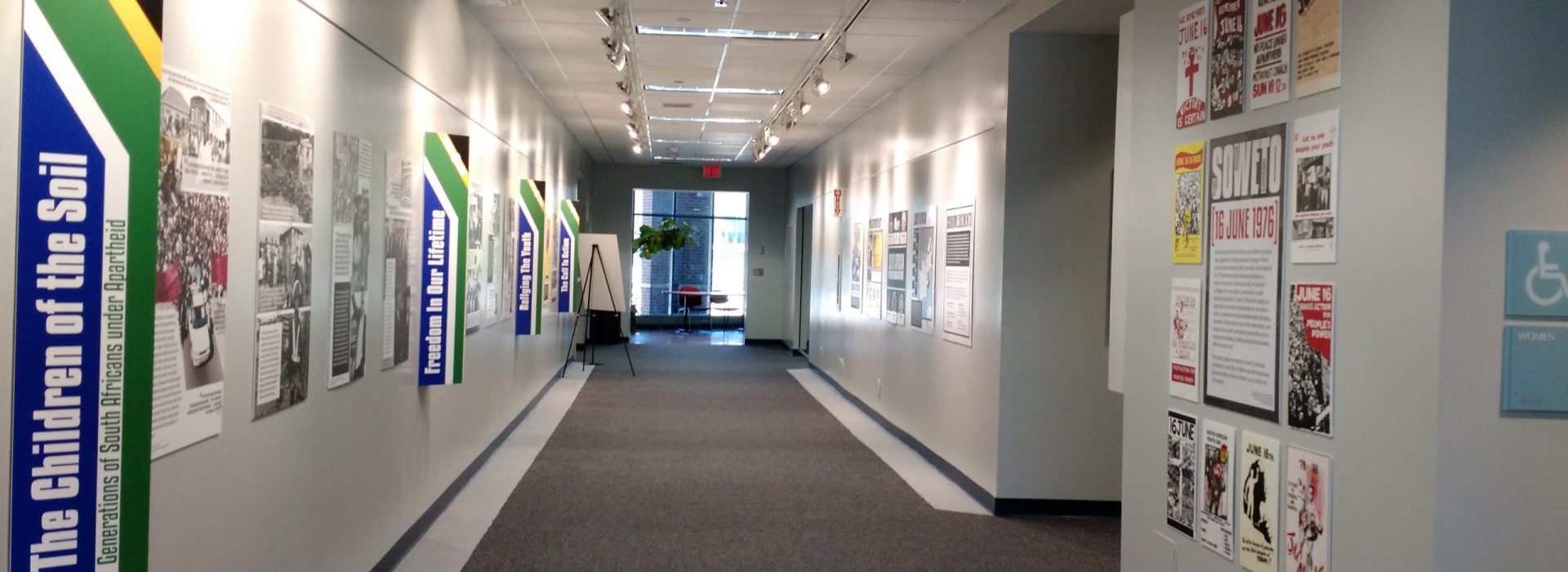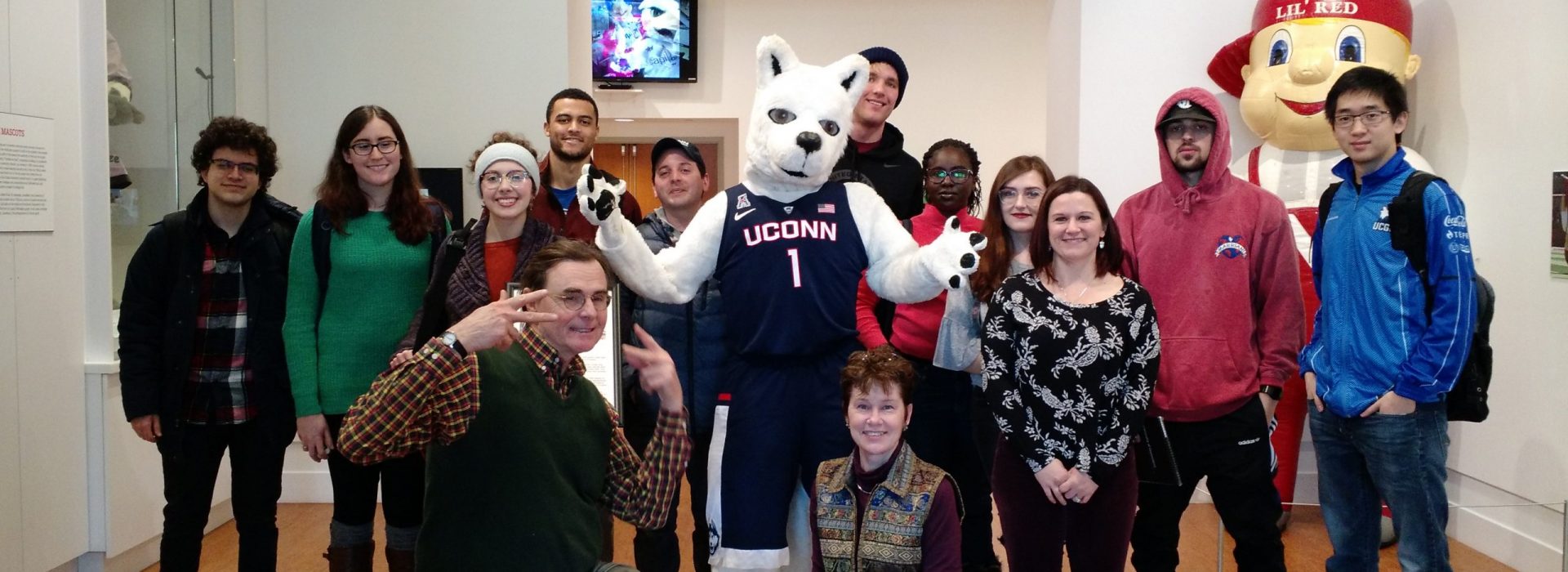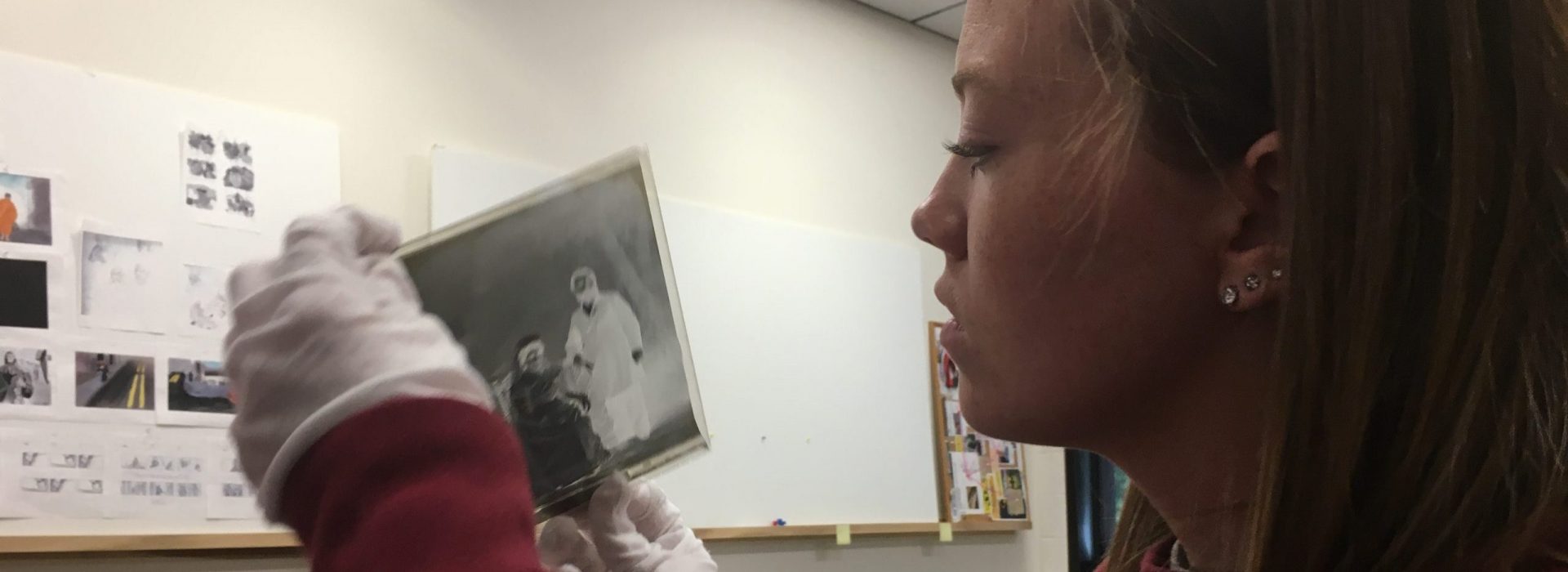Digital Culture (B.A.)
About
The Bachelor of Arts (B.A.) program in Digital Culture provides students with the skills and knowledge needed to address the technological challenges impacting learning, advocacy, and civic engagement. Students in this concentration develop a depth of skill in the digital media / design area of their choice while also gaining a practical and theoretical grounding in a humanities discipline or allied field appropriate for careers in cultural and public institutions. Students in Digital Culture develop real-world knowledge relevant to their interests, but these efforts focus on the design, development, or implementation of evidence-based solutions that make a difference in society.
Career Paths
- Civic Engagement and Advocacy (e.g., Digital Media Activist, Digital Media Strategist, Digital Media Campaign Coordinator)
- Learning and Exhibition Design (Museum Exhibition Designer, Exhibition Curator and Coordinator, Interactive Media Designer)
- Research and Scholarship (University Professor, University Researcher)
- Social Media Strategy and Content Design for Cultural and Public institutions (e.g., Social Media Manager, Multimedia Designer, Content Strategist)
- Web/Interactive Media (Learning Designer, Instructional Designer, Interactive Media Designer, Serious Games Designer)
Course Sequence / Skills Learned
To graduate from the University of Connecticut, undergraduate students must complete 120 credits of coursework. This includes the designated courses for their major as well as the University's general education requirements. This page contains information specific to the major requirements in the Digital Culture concentration.
First-year students entering the Digital Culture concentration will obtain key DMD skills in design and storytelling through the shared DMD Core Curriculum (DMD 1001/1002 Foundations of Digital Media and Design 1 & 2, DMD 1101/1102 Design Lab 1 & 2).
Students then start their core major requirement by selecting one of the approved introductory courses for the Digital Culture concentration. This list includes:
- DMD 2020 Design Thinking
- DMD 2610 Introduction to Digital Humanities
- DMD 2620 Human Development, Technology, and Digital Media
Second-year Digital Culture students also choose one of the following introductory course in an area of technological specialization:
- DMD 2200 Motion Design & Animation I
- DMD 2210 Film & Video Editing I
- DMD 1070 Web Design I
- DMD 2700 Digital Media Strategies for Business I
- DMD 2500 Introduction to Digital Game Design
As juniors and seniors, students begin to expand their expertise and prepare for a career by taking the following courses:
- DMD 3610 Collaborating with Cultural Organizations I: Methods
- DMD 3620 Collaborating with Cultural Organizations II: Practice
- One course in the Digital Culture emphasis
- Two additional DMD Studio courses in their technical area of focus
- DMD 4086 Senior Thesis (take in each semester of the final year for a total of 6 credits)
The flexibility offered in the Digital Culture concentration acknowledges the different ways Digital Media interacts with people and information in society. It is a major for those interested in the influence digital media have on how we learn, live, connect, and envision the future so that they can play a part in shaping that future. The Digital Culture learning experience is deeply committed to openness, collaboration, interdisciplinarity, and innovation for the benefit of individuals, communities, and our increasingly interconnected global society.
A bachelor of arts (B.A.) degree offers a well-rounded education with the opportunity to pursue a second major, minor, or other focused areas in the liberal arts and sciences. The table below is a breakdown of credits for the B.A. degree.
Bachelor of Arts Curricular Table Summary:
| Studio or
Related Areas |
Art/Design
History |
General Studies | Electives* | Total
Number of Units |
| 45 credits | 6 credits | 39 credits | 30 credits | 120 credits |
| 37.5% | 5% | 32.5% | 25% | 100% |
*remaining elective credits can go toward a second major and/or minors.
Important Note: Due to the accreditation requirements of NASAD (National Association of Schools of Art & Design), as a liberal arts degree the B.A. has a limitation of 30-45% of credits in art and design of the total curriculum. Therefore the B.A. in Digital Culture is capped at 42 credits (35%). Students earning the Bachelor of Arts are therefore limited in the quantity of DMD courses that they can take. Students who want to take more major courses should carefully consider the Bachelor of Fine Arts degree.
UConn’s NASAD listing can be found here: https://nasad.arts-accredit.org/directory-lists/accredited-institutions/search/?id=I0577
Research and Facilities
Thanks to ongoing research and community outreach, Digital Culture students can engage in various projects across the university and state. Most notably, Greenhouse Studios serves as a research hub for Digital Culture faculty working on numerous grant-funded Digital Media and Design projects. Located on Level 1 of the Homer Babbidge Library, this physical space forges diverse and democratic collaborations that build humanities scholarship in new formats that engage new audiences. Other opportunities for students to develop real-world experience include placement at libraries, museums, or collaborative work with faculty involved with education and K-12 public schools.
Student Clubs / Extracurricular
Successful Digital Culture students not only apply themselves within their coursework, but also pursue their interests outside the classroom. UConn’s more than 600 vibrant student clubs are funded through the university system to help empower students to enhance their formal education and build a close community. Learn more about a few of these DMD-related student clubs:
Alumni Success
Students from our program have gone on to experience existing careers and opportunities in industry. Here are a few recent highlights.
- Aidan Brueckner (B.A. with minor in Human Rights ‘21), Internship
- Samantha Mairson (B.A. ‘17), earned her MLIS at Syracuse University as a Graduate Assistant in the University Archives, currently the Children’s Librarian in the Rye Free Reading Room.
UConn Digital Culture in the News
Greenhouse Studios’ Unique Collaborative Process Finds Success in First 5 Years, September 1, 2021
Archival documents app developed at UConn expands | The Daily Campus, February 8, 2021
UConn Library, School of Engineering to Expand Handwritten Text Recognition - UConn Today, July 9, 2020
New Graduate Fellowship Supports Diverse Voices in Humanities at UConn - UConn Today, June 9, 2020
UConn to Offer Collaborative Minor in Digital Public History - UConn Today, June 1, 2020
UConn Art + Feminism Wikipedia Edit-a-thon 2020 - Windham Arts Radio Radio Revu on WILI, March 11, 2020
Courtroom 600 Team Immerses Users in Nuremberg Trials at the 2020 ED Games Expo, January 17, 2020
The Times of Israel: The ‘virtual’ future of Holocaust education is already here, January 10, 2020
Women in the Arts: Setting the Record Straight - UConn Today April 19, 2019
Spirit Award Winners Honored for Contributions to Community - UConn Today, March 21, 2018
